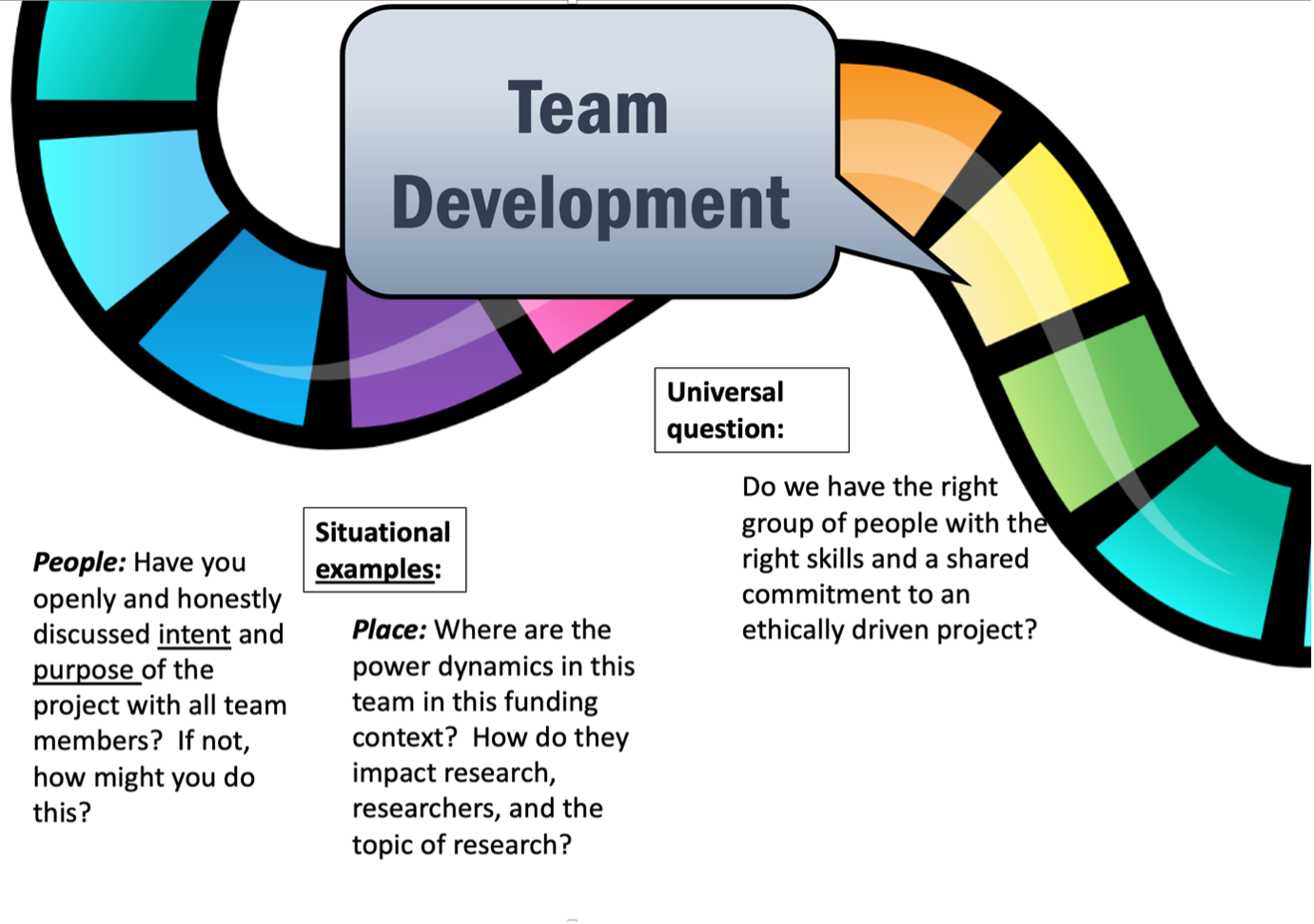|
Stage 2 TEAM DEVELOPMENT |
This stage is about finding others who you will be working with to develop the project idea, submit a proposal and deliver the work. The team will typically involve research colleagues (perhaps also from other institutions) and the establishment of different roles to ensure that the project has complementary and comprehensive expertise to support ethical research practice and outcomes. Ethical global research depends upon bringing together the best possible research team and evaluating whether that team will be able to maintain the high standards required to behave ethically and successfully in the global research context. |
|||
|
|
||||
|
Being alert to ethical dilemmas |
||||
|
As a team, have we explored our own ethical positions and the inherent tensions/difficulties we are likely to encounter in this project? |
Supporting considerations:
|
|||
|
Working towards solutions |
||||
|
Place |
People |
Principles |
Precedent |
|
|
It is important to balance the needs of local and global partners when building and developing a team. Identification of priority skillsets for different places (and phases) of the project, is key. Identify and discuss place-based power dynamics in the project including how they impact research and what can be done to mitigate negative impacts. For example, who has secured the funding and does/should this influence power in decision-making. Consider cultural sensitivity training to address conscious and unconscious bias in the team. |
Openly and honestly discuss intent and ethical purpose with all team members. Consider having an external facilitator for this conversation – perhaps a peer/’ally’ from another global research team. Ensure sure that your team members have access to relevant training on global ethics and on effective teamwork in challenging research environments. Ensure that your PI has access to relevant training or mentoring on leadership in a cross-cultural project. Approach key people to support you and your team to enrich and strengthen your skills. Identify what role they might play. For example, an external peer reviewer can be helpful in consolidating the research ideas of your team; an ‘ethics coach’ may assist in maintaining strong working relationships amongst team members by facilitating the discussion of ethical challenges. Check whether there is any global ethics specialisation / support on the advisory board. Pre-emptively make contact with this person and discuss your project including any potential ethical challenges. |
Working together from first principles, identify innovations your team can initiate to ensure that you maintain the highest levels of team functioning (e.g., invite a research ‘ally’ from out with the project to undertake a bi-annual review of team functioning and of project progress)
|
Ensure that your team has a shared understanding of relevant policies, practices and traditional ways of knowing to maximise consistency and accountability. Look for examples in your institution of well established, effective, global research teams and consider establishing a peer-support partnership between your two teams. |
|
Body
